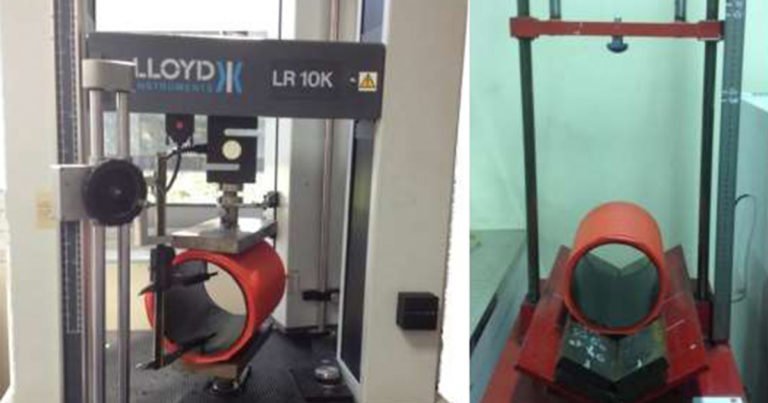TPC and corrugated conduit are designed for protecting electrical connections and networks, providing cable channels, etc. The corrugated shape not only reduces materials, but also increases mechanical protection.
The quality of these products is guaranteed by the NF mark which is derived from the 50086-2-4 standard. This is a voluntary initiative on the part of the plastics industry that provides customers with guaranteed performance and durability in return for their investment. Companies entitled to use the quality mark are regularly audited and samples taken from their outlets to ensure compliance.
It bears repeating that these conduits are designed to be buried underground and it is therefore appropriate that these quality rules are seen to be scrupulously adhered to.
Here is a summary of the tests that are regularly carried out by companies entitled to use the NF quality mark. During production, dimensional and visual checks are carried out on each batch – the outer diameter, the thickness and the appearance (complete corrugations, smooth interior skin that has not become detached, TPC cable conduit colour, etc.). Further tests are then carried out in the laboratory.
Crushing resistance test
This test is carried out to measure the deformation of the inner diameter in relation to the force exerted. Crushing due to the weight of the backfill is simulated to ensure that the conduit does not become too deformed, which could impede cable and pipe insertion.
The tests are carried out using a dynamometer fitted with steel plates and set to measure compression. Three samples per batch are tested at 23°C (±2°C). The sample is placed in the test apparatus between the two dynamometer plates. A force N is applied to the product and the deformation of the inner diameter must not exceed 5% of same.
Impact test
The purpose of this test is to check the strength of the product following an impact. Careless handling or an object such as a tool falling on the conduit is simulated and a check run to ensure the conduit has not been damaged – a sort of Crash Test for cable conduit.
Twelve 200 mm (± 5 mm) long samples are kept at a temperature of -5°C for at least 2 hours after the impact area has been marked on each one such that all the pipe generatrices are tested.
The impact tests are carried out on special testing equipment calibrated to simulate a hammer falling from a given height on the product under test. Each sample is tested in turn and when testing is complete, the samples are left to rest for 4 hours as plastics have a memory effect and generally regain their shape to a certain extent.
A calibrated steel ball is then sent through the conduit. If it gets stuck, there is excessive deformation and the sample fails the test. There must also not be any disintegration or cracking allowing light or water into the space between the interior and the exterior walls.
In essence, the TPC cable conduit must neither be excessively deformed nor perforated.
To conclude, the battery of tests carried out guarantees a high quality level for the products in question, leading to trouble-free installations when NF-certified products are used. By insisting on the use of NF or other quality mark products in the specifications, many of the problems encountered on site can be eliminated.
YF
